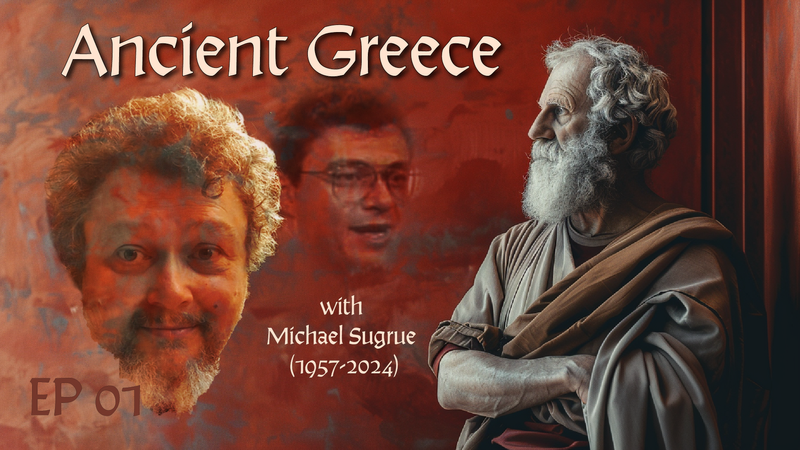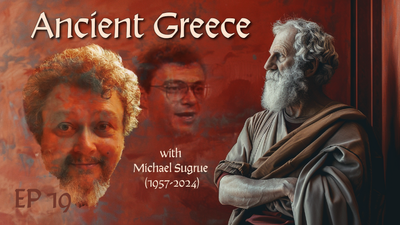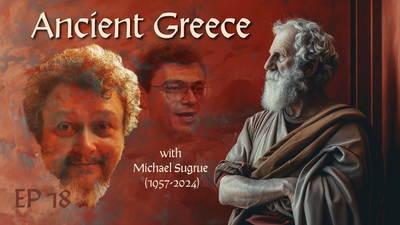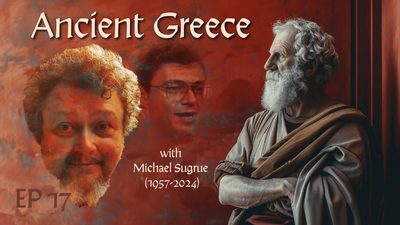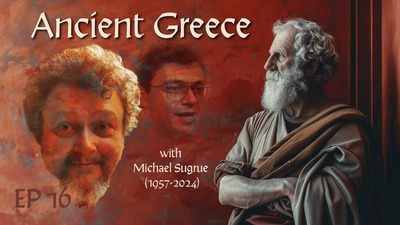Welcome to Plato Re-Imagined! As we embark on this philosophical journey, we aim to bridge the wisdom of the past with the complexities of modern life. Plato’s dialogues are not just relics of an ancient world; they are living texts, offering reflections on justice, society, knowledge, and the human condition. In the spirit of this series, we’ll explore how Plato’s work can inspire and provoke thought in our own lives today.
Plato was concerned with abstract theories and how we should live and organize our communities. His enduring relevance lies in the questions he raised—about truth, leadership, education, and morality—that continue to challenge us. As you read through each week’s insights, consider what Plato wrote and what he was trying to evoke in his audience. What new questions or reflections does it inspire in you?
This series will also offer a space for readers to engage with the legacy of ancient philosophy in practical ways. At planksip.org, we’re building a community of thinkers committed to reviving the dialogue that Plato initiated. By imagining Plato as an ideal worth striving for, we seek to cultivate a more thoughtful and reflective approach to living in these turbulent times. Join us, and let’s re-imagine what it means to pursue wisdom.
From the Archives of Ancient Greece: Dr. Sugrue’s Take on Plato’s Republic
Dr. Michael Sugrue captures the essence of Plato’s Republic by framing it as an audacious attempt to construct a rational society—a “city of reason.” Sugrue argues that this text isn’t just about political theory but a comprehensive vision for personal and societal harmony. Plato’s idea of justice, for instance, is not limited to law and order but extends to the alignment of the soul’s three parts: reason, spirit, and desire.
One of Sugrue’s compelling points is that the Republic challenges us to confront the way we organize our inner and outer worlds. He uses the analogy of a city to illustrate that a well-ordered society mirrors a well-ordered soul. This metaphor resonates today, as we grapple with questions of mental health, societal justice, and ethical leadership. What does it mean to lead a just life, not only in our communities but within ourselves?
Sugrue’s analysis invites us to consider whether the Republic is a utopian fantasy or a provocative blueprint for rethinking modern life. The work resonates with ongoing discussions about inequality, political leadership, and the values that underpin our societies. If you’ve ever wondered about the tension between the ideal and the practical, the Republic offers a space to explore these contradictions. Dive deeper into this discussion at planksip.org, where we imagine the pursuit of reason as a path worth striving for.
Insights from the Dialogues: The Analogy of the Cave
Republic, 514a–520a
Plato’s “Allegory of the Cave” is one of his most powerful illustrations of the human condition. Imagine prisoners chained in a dark cave, seeing only shadows projected on the wall. For them, the shadows are reality. This powerful image represents how most of us experience the world—trapped by misconceptions, partial truths, and the illusions of sensory perception. Only through an arduous journey of questioning and reflection can we emerge from this darkness into the light of understanding.
In this dialogue, Plato suggests that the journey out of the cave mirrors the philosopher’s path toward enlightenment. But it’s not just about gaining knowledge; it’s about transforming one’s entire way of seeing the world. When the freed prisoner returns to the cave, he is met with hostility and disbelief. Plato thus warns that those who see more deeply are often misunderstood or resisted by those who are still confined to the shadows. Think about times in your life when you’ve faced resistance for challenging conventional beliefs—Plato’s allegory speaks to that very tension.
As you reflect on this passage, consider how it applies to our modern age of information overload and social media echo chambers. Are we content with shadows, or do we have the courage to seek the light? At planksip.org, we encourage readers to grapple with these questions and share their reflections. What shadows are we still bound by, and what does it take to break free?
Chance and Fate: Ancient Board Games and the Role of Luck
In ancient Greece, board games were not just pastimes; they reflected deeper cultural and philosophical beliefs. Take the game of knucklebones (astragali), which was played with small bones thrown like dice. The game combined elements of skill and chance, mirroring the way ancient Greeks understood the balance between human agency and fate. In a world where the gods were believed to influence human affairs, these games became symbolic of life’s unpredictability.
Imagine ancient Greeks sitting around, casting their knucklebones, and reflecting on the outcomes. These games served as a reminder that while we can plan and strategize, there are forces beyond our control that shape our destinies. This concept resonates with Plato’s philosophical inquiries into human freedom and divine intervention. It also reminds us that despite our best efforts, we must learn to navigate uncertainties in life with humility and resilience.
Explore the Mystical World of Astraguli: Ancient Games of Chance with Cultural Significance.
By exploring these ancient games, we find echoes of the philosophical questions Plato raised. What role does luck play in our lives, and how much control do we really have? At planksip.org, we’re inviting you to share your thoughts on this enduring question. Do you see your life as a series of strategic moves, or do you find yourself wrestling with forces beyond your control? Let’s explore this together.
Closing Reflection: Socrates’ Enduring Legacy
As we reflect on this first episode of Plato Re-Imagined, one figure stands out as a beacon of philosophical courage—Socrates. He spent his life questioning the assumptions of his fellow Athenians, urging them to seek truth beyond the shadows of everyday life. His willingness to confront conventional wisdom cost him his life, yet his legacy endures as a testament to the power of self-examination.
Socrates’ commitment to the examined life is more relevant now than ever. In a world often driven by surface-level perceptions and soundbites, his relentless pursuit of deeper understanding challenges us to think more critically about our beliefs, actions, and society. At planksip.org, we’re creating a space where this legacy can continue to inspire new generations of thinkers.
Join us as we explore Plato’s dialogues, engage in meaningful discussions, and challenge ourselves to live more thoughtful and intentional lives. Let’s re-imagine what it means to be seekers of wisdom, and let’s do it together.

Plato Re-Imagined
This course offers 32 comprehensive lectures exploring most of Plato's dialogues. These lectures guide students toward a consilient understanding of the divine—a concept that harmonizes knowledge across disciplines and resonates with secular and religious leaders. As a bonus, Lecture #33 focuses on consilience, demonstrating how different fields of knowledge can converge to form a unified understanding.

